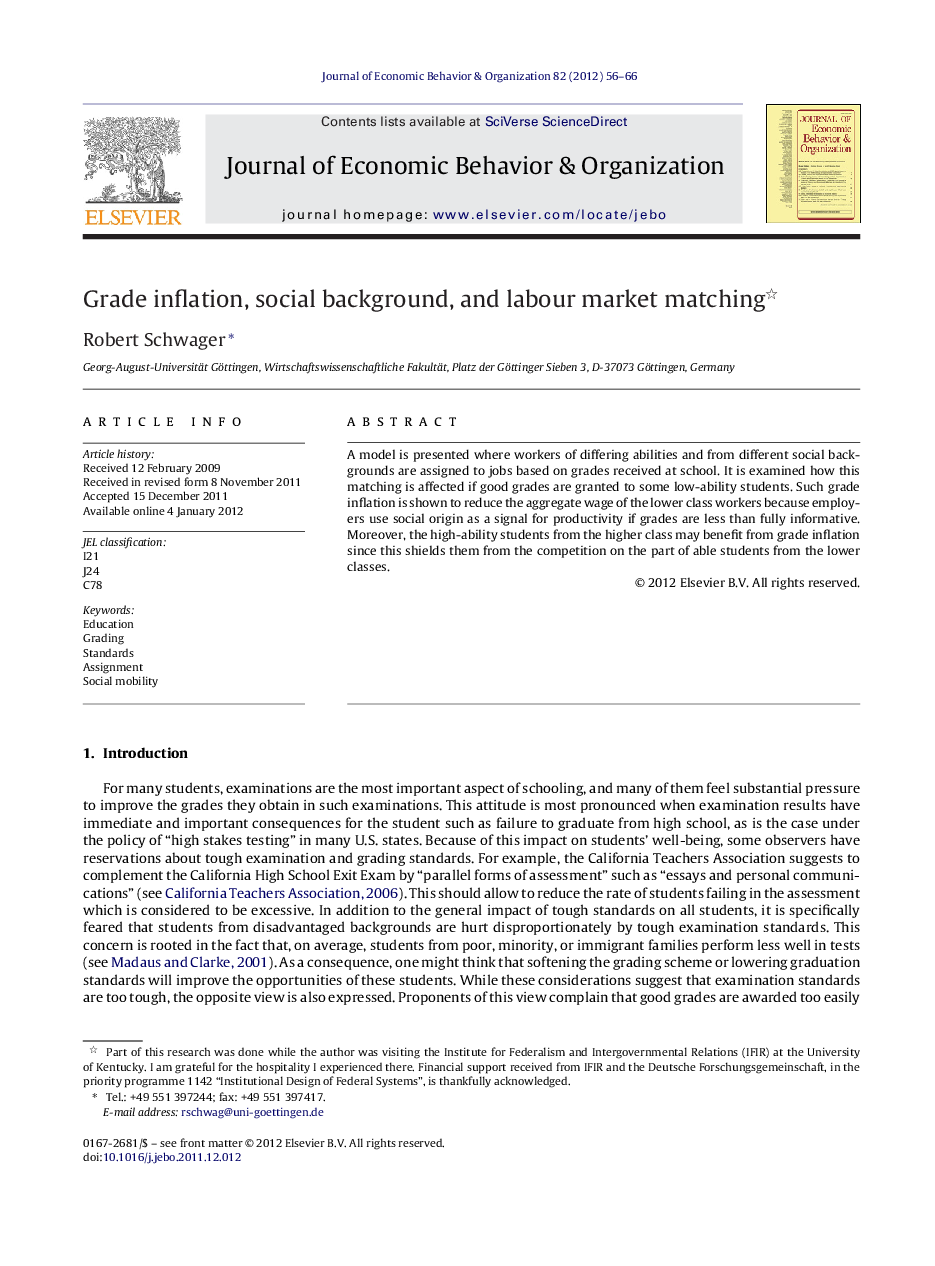| Article ID | Journal | Published Year | Pages | File Type |
|---|---|---|---|---|
| 883850 | Journal of Economic Behavior & Organization | 2012 | 11 Pages |
Abstract
A model is presented where workers of differing abilities and from different social backgrounds are assigned to jobs based on grades received at school. It is examined how this matching is affected if good grades are granted to some low-ability students. Such grade inflation is shown to reduce the aggregate wage of the lower class workers because employers use social origin as a signal for productivity if grades are less than fully informative. Moreover, the high-ability students from the higher class may benefit from grade inflation since this shields them from the competition on the part of able students from the lower classes.
Related Topics
Social Sciences and Humanities
Economics, Econometrics and Finance
Economics and Econometrics
Authors
Robert Schwager,
